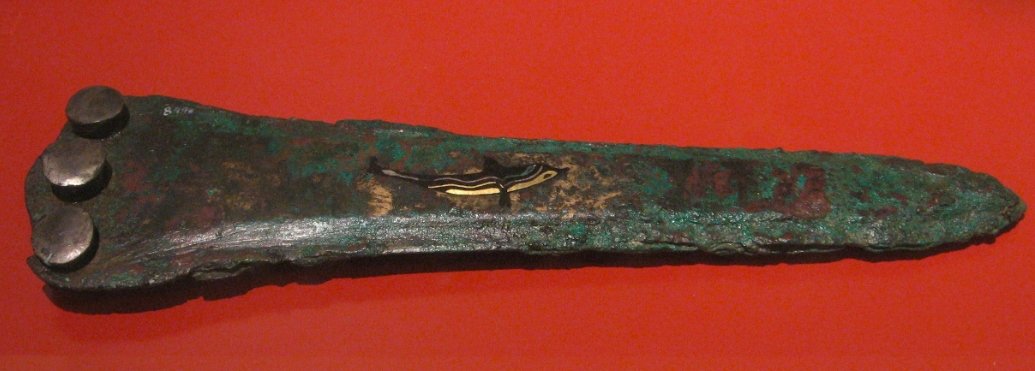An extraordinary archaeological discovery has been made off the coast of Türkiye, where a 3,600-year-old bronze dagger from the Minoan civilization was unearthed from an ancient shipwreck. This significant find, led by a team of underwater archaeologists from Akdeniz University, sheds new light on the trade routes and cultural interactions of the Bronze Age. The dagger, adorned with silver rivets, offers a glimpse into the craftsmanship and maritime prowess of the Minoans, who were known for their extensive trade networks across the Mediterranean.
Unearthing the Ancient Shipwreck
The underwater excavation, which began in 2019, has been meticulously conducted by a team led by Dr. Hakan Öniz, head of the Department of Conservation and Restoration of Cultural Properties at Akdeniz University. The shipwreck, located off the coast of Kumluca in Antalya, Türkiye, lies at a depth of approximately 160 feet. This site has long been of interest to archaeologists due to the presence of copper ingots, believed to have originated from the Troodos Mountains in Cyprus.
The discovery of the Minoan dagger among the wreckage is particularly significant. The dagger, measuring seven inches in length, is a testament to the advanced metallurgical skills of the Minoans. The silver rivets and intricate design suggest that it was a valuable item, possibly used in ceremonial contexts or as a symbol of status. This find not only highlights the craftsmanship of the Minoans but also provides insights into their trade practices and interactions with other cultures.

The shipwreck itself is dated to the 16th century BCE, making it one of the oldest known shipwrecks in the world. The presence of copper ingots and other artifacts indicates that the vessel was likely engaged in long-distance trade, transporting goods between various regions of the Mediterranean. This discovery offers a unique window into the maritime activities and economic networks of the Bronze Age.
Significance of the Minoan Dagger
The Minoan civilization, which flourished on the island of Crete, was renowned for its maritime prowess and extensive trade networks. The discovery of the bronze dagger in a shipwreck off the coast of Türkiye underscores the far-reaching influence of the Minoans and their interactions with other cultures. The dagger’s craftsmanship and materials provide valuable information about the technological advancements and artistic achievements of the Minoans.
Experts believe that the ship was likely en route to Crete when it sank, carrying valuable cargo that included the bronze dagger. The presence of such an artifact in the shipwreck suggests that the Minoans had established trade connections with regions as far as Cyprus and Anatolia. This find also highlights the importance of maritime trade in the dissemination of goods, ideas, and cultural practices during the Bronze Age.
The dagger’s discovery has sparked renewed interest in the study of Minoan civilization and its interactions with other ancient cultures. Further analysis of the artifact and the shipwreck site is expected to yield more insights into the trade routes, economic activities, and cultural exchanges of the time. This find is a significant contribution to our understanding of the interconnectedness of ancient Mediterranean societies.
Future Research and Implications
The discovery of the Minoan dagger has opened new avenues for research and exploration. The team at Akdeniz University plans to continue their underwater excavations, with the aim of uncovering more artifacts and gaining a deeper understanding of the shipwreck and its contents. Advanced technologies, such as sonar surveys and three-dimensional scans, are being employed to document the site and ensure the precise recording of all findings.
The implications of this discovery extend beyond the academic realm. The Minoan dagger and other artifacts from the shipwreck will likely be displayed in museums, providing the public with an opportunity to engage with and learn about ancient civilizations. This find also underscores the importance of preserving underwater cultural heritage and the need for continued investment in archaeological research.
The Turkish Minister of Culture and Tourism, Mehmet Nuri Ersoy, has praised the efforts of the archaeological team and highlighted the significance of the discovery. He emphasized that the Minoan dagger is not only a valuable artifact but also a symbol of the rich cultural history of the Mediterranean region. The ongoing research and excavations are expected to contribute to the broader understanding of ancient trade networks and cultural interactions.













